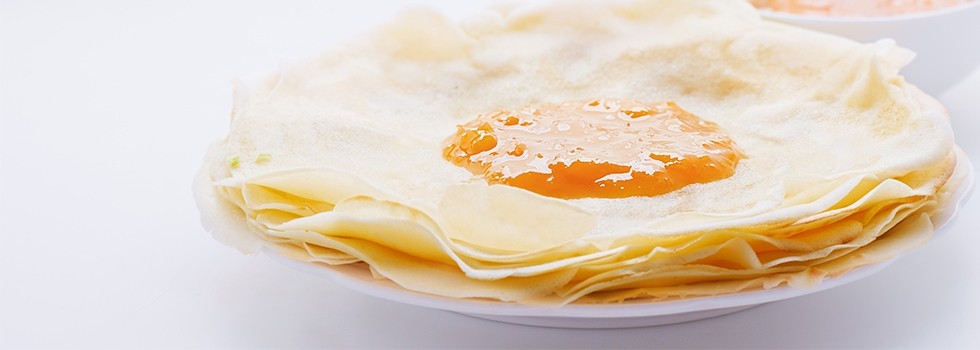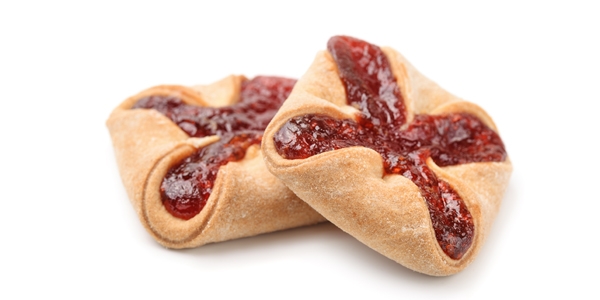Promotional Features
Great flavor, freshness and quality throughout the entire shelf-life of baked goods
Consumers today are increasingly concerned about how they impact the wellbeing of the planet. As a result, they seek out sustainable solutions that are both healthy and fresh, reducing the impact of food waste.
This is key when you consider we waste no less than 1.3 billion tons of food per year, according to the Food and Agriculture Organization of the United Nations (FAO). Possible ways to decrease the amount of food discarded include updating the way we communicate about expiration dates, packaging innovations and extending the shelf-life of food. This is especially needed as an application in sales channels where consumers are typically removed from the producer, like in sales via hypermarkets and supermarkets.
In the UK more than 60% of cakes and pastries are sold through hypermarkets, supermarkets, and convenience stores according to Global Data.2 This equates to a high volume of sweet baked goods sales that need to remain fresh for an extended period of time.
The biggest challenge in the baked goods industry
One of the challenges faced by the bakery industry is preventing the growth of yeasts and molds in breads, sweet bakery products, bakery fillings and fruit preparations. Manufacturers traditionally utilize synthetic preservatives and additives produced from side-streams of the petroleum industry. Many bakery products still contain these non-natural additives. One of the reasons why these artificial preservatives are used is their low cost-in-use. As a result, synthetic preservatives and additives have become more readily available, perpetuating the habit of use.
However, the situation is changing, with consumers seeking natural and sustainable food production. A 2022 report by Leatherhead Food Research focusing on eight European countries found that 38% of consumers have purchased products from different brands than their preferred brand because the products are labelled as environmentally friendly.3 A further 28% said they intend to do so in the future. If we want to take good care of our planet, it will be essential not only to focus on shelf-life extension of foods, but to do so in a sustainable way.
Sustainable and natural solutions for baked goods
The good news is that sustainable, natural solutions produced by fermentation are now becoming the new market standard for this purpose. Using the age-old process, sugar can be transformed with the help of bacteria into a range of natural antimicrobial and natural flavoring solutions. With more than 80% of Health & Wellness products in the bakery sector in Eastern Europe having 'naturally healthy' as key attribute, claims like ‘all natural’ or ‘with 100% natural ingredients’ are in high demand.4 The fermentation process uses renewable raw materials as its primary input, with a low environmental impact.
Antimicrobial fermentation ingredients have already been around for a long time and are mostly applied in highly perishable products such as meat, fish, ready-to-eat meals and sauces. In the baking industry, flavor aspects are often seen as too challenging for an effective application.
“At Galactic, we are continuously perfecting the fermentation process to bring unique natural solutions to the market. By combining various types of fermentation, a wide range of ingredients that contribute to freshness and flavor can be created. Additionally, a range of natural antimicrobials with a specific targeted antimicrobial activity can be developed. This way we cater custom solutions for each application to the food industry,” explains Alain Bernard, the R&D Food Applications Manager at Galactic.
Natural antimicrobials can protect baked goods against spoilage
Showing how a baked product is protected against the growth of yeasts and molds is still very challenging. Quantification of microbial load is exceptionally complex compared to bacterial counts, due to the very local growth of yeasts and molds on food matrices and thus the heterogeneity of the material to evaluate. Evaluations to study the protection of a food against yeasts and molds is often done by visual evaluation.
In the Galactic application laboratories this type of evaluation happens daily. For example, a gluten-free muffin recipe was developed based on buckwheat, applying one of Galactic’s latest innovations. The muffin was then compared to a negative reference containing no added preservative. The first evidence of mold growth appeared after 12 days for the negative reference while the muffin containing a Galactic natural solution reached a shelf-life of no less than 20 days. This is demonstrates how natural antimicrobials can contribute to fight food waste in a sustainable way.
Upcoming trends for the food industry
A growing trend across the Europe region is seen in health-conscious consumers who increasingly scrutinize product labels for ingredient lists. As many as 54% of consumers globally state that they pay high or very high attention to the ingredients in food and drinks.5 This aligns with the innovation focus of creating label-friendly innovations for various food sectors. Fermentation technology makes it possible to create solutions for the clear, and transparent labelling consumers are increasingly expecting. Galactic continuously works to improve the freshness of a wide variety of baked goods, from bread, cake, muffins to cheesecake, crêpes, chocolate fillings and fruit jam.
An evolution of the natural production and processing of food and its ingredients in a sustainable way is increasingly becoming the natural course for food manufacturers to follow. Food manufacturers who act on this growing market trend will continue to cater to consumer demand – and the planet.
References
1. Technical Platform on the Measurement and Reduction of Food Loss and Waste. The Food and Agriculture Organization of the United Nations (FAO).
2. The United Kingdom (UK) Bakery Cereals Market Assessment and Forecast 2021-2026. GlobalData (2022, May).
3. The future of food and drink labelling in Europe, ©Leatherhead Food Research 2022.
4. GlobalData Opportunities in the Global Bakery Cereals Sector. (2018, June).
5. Fresh, Natural and Pure - TrendSights Analysis 2020.


